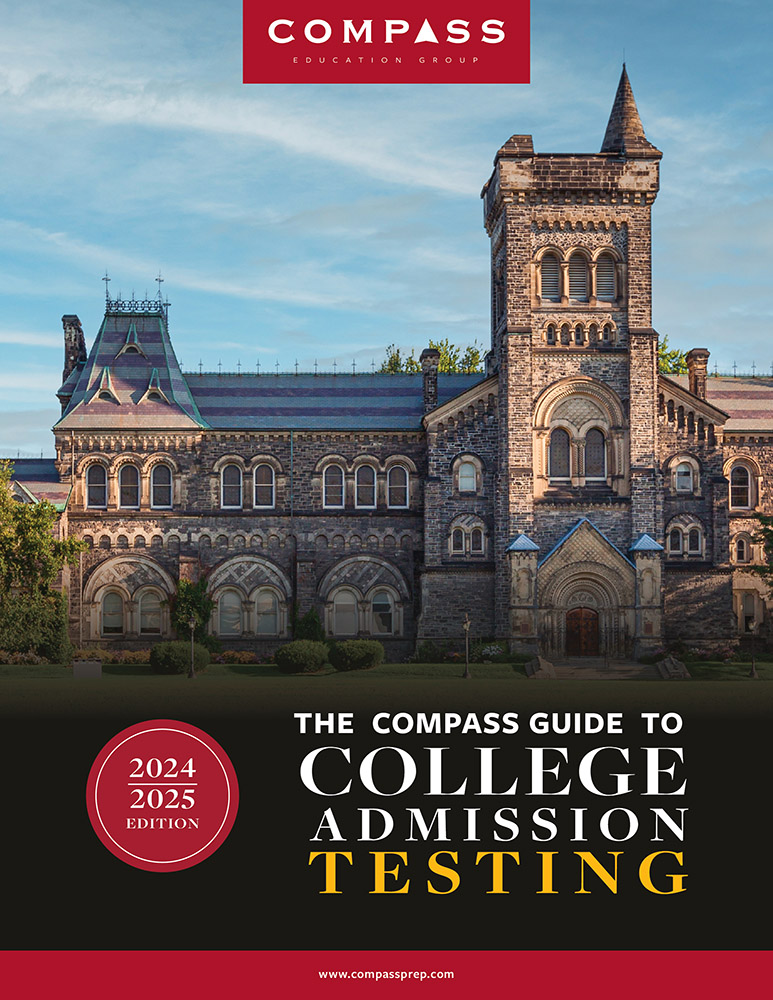
Test prep companies are often seen as contributors to the college admissions frenzy. And while it’s true that not all “experts” have your best interests in mind, the crowded test prep industry is not a unified body with a common approach. So how do you find a company that will serve you well? Listen to how they distinguish themselves when answering these questions a local counselor recently asked us:
What makes you different?
Compass provides high-level individualized testing guidance and assessment, one family at a time, before any actual test preparation begins. Our idea of test preparation goes far beyond tips and tutoring; we first address more fundamental and overarching aspects like timeline, test selection, and amount of preparation – all within the context of your needs and goals. We distance ourselves from the prevailing philosophies of the commercial test preparation market and instead embrace the consultative values of a school’s college guidance department.
Our admission testing experience dates back to the 1980s, so we have lived through a series of changes and corresponding behavioral trends. It’s our job to maintain a responsible and calming perspective and position of support to help folks make informed, case-by-case decisions that make the most sense for them.
When do you recommend taking the SAT or ACT?
We don’t advocate early testing. Advisors who tell students to “get testing out of the way” do a disservice. Last year, only 9% of the consultations we conducted with rising juniors and their parents involved meaningful discussion of fall testing, and always initiated by the parent. With those, we discouraged fall testing 84% of the time. That left roughly 1.5% of our junior class to test in the fall – in most cases, in December. We promoted patience and it paid off for our students in the long run.
Does it ever make sense to test early?
Sure. A closer look at those exceptions reveals something about their motives. Every fall test taker we tutored first took a diagnostic SAT. The average starting score was 2110. These were exceptional test takers and exceptions to the best practice. Some may say that with those starting scores, they didn’t need prep. Maybe. However, these were students with exceptionally high aspirations. So we recommended a moderate amount of targeted prep and saw these students increase their scores to 2250-2400.
In addition to maturity and exceptional ability, we witness something else with these students: drive. Some of this drive is as much from mom and dad, but these are clients for whom there exists an undeniable element of intrinsic competitive fire. We can and do attempt to temper some of this, but it’s who they are.
How do I know what’s best for me?
When it comes to admission testing, have a thoughtful and sensible purpose for what you’re doing. If you’re testing early, why? Is there a smarter alternative that would address that concern? If you’re taking the ACT and SAT, why? Have you taken the time to compare the two? Have you mapped out a viable testing sequence that will have you performing at or near your potential when each test date arrives? Have you factored in the Senior Fall testing season into your overall testing plans? Have you factored in the timing of Subject Tests?
What is “normal?”
While every student is different, the most common testing groups are:
Selective College Applicants
They use the summer before junior year to research tests, take diagnostics, and map out the summer, fall, spring, and following summer and fall. If they decide to take both the SAT and ACT, they typically prepare 3-4 months for the January or March SAT. They then take the ACT in February or April. Good SAT prep will build a solid base of standardized testing skills, so it’s likely that only a moderate amount of ACT-specific prep would occur during the few weeks between the SAT and the ACT. If they only take the ACT, they do comprehensive preparation for the February or April test. They then use May and/or June for strategically selected Subject Tests, which conveniently dovetail with the AP review occurring in school. Over the summer, they re-group. They review their spring testing performance within the context of junior year grades and target colleges. They re-test in the fall as needed. Senior fall testing performance is almost certainly going to exceed what they would’ve achieved back in the fall of junior year.
Non-Subject Test College Applicants
They typically delay testing until late spring of junior year. The May SAT and/or June ACT are appropriate dates. These students give themselves time to grow into these tests. They use the fall and winter to explore both tests to see if one can be pursued in favor of the other. They downplay testing and test prep to an appropriate level. But they prepare enough to push these scores high enough so they don’t stand out negatively. They re-test in the fall as needed.
We don’t necessarily discourage the use of the preceding summer or fall of junior year to begin preparation. For many, they need to start early for scheduling or bandwidth purposes. Others like to receive a limited amount of prep before the PSAT to feel more confident. It carries over to the SAT and allows for a less ambitious continuation of prep closer to a spring SAT date. We don’t recommend testing “cold” throughout junior year and preparing for the first time as a rising senior. Any prep over that final summer is hopefully fine-tuning and review rather than foundation building.
Test preparation should provide relief to a stressful problem, not add stress to the process. If it feels like your test prep solution is actually not one, then keep looking.

